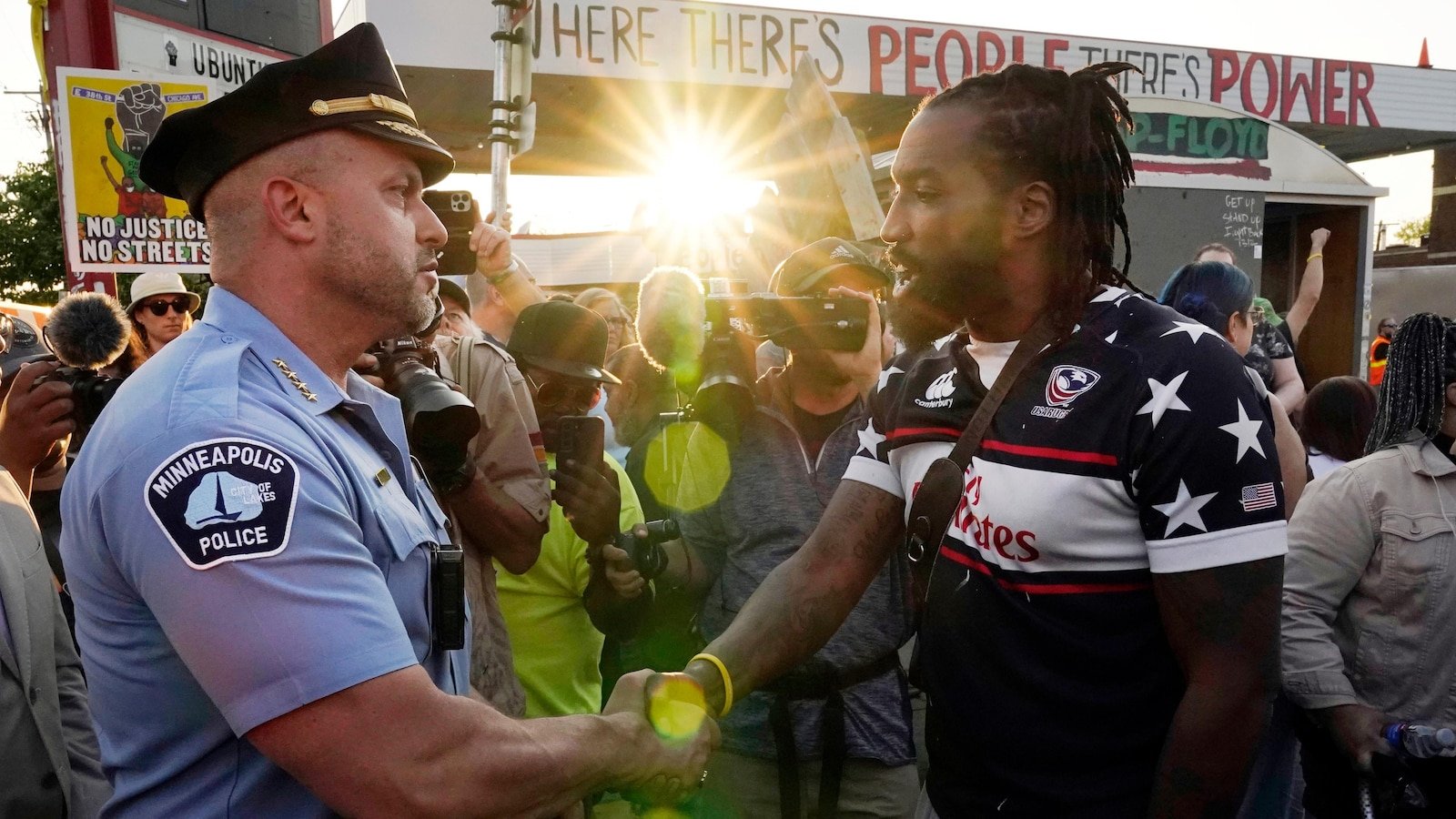An influential group of law enforcement leaders is pushing police departments across the U.S. to change how officers use force when they subdue people and to improve training so they avoid “consistent blind spots” that have contributed to civilian deaths.
Calling the use of force “a defining issue in policing today,” the Police Executive Research Forum released extensive new guidance it says can reduce the risks of deaths following police restraint. The group credited an ongoing investigation led by The Associated Press for inspiring the reforms.
The AP and its reporting partners created a database of more than 1,000 deaths over a decade after officers used tactics meant to subdue people without killing them — the same category of force that killed George Floyd.



I mean, it’s about time, and I’m glad they’re finally realizing the thing they should have realized like… half a century ago, but this really shouldn’t be a new idea for them.
“Police Group” not “Police Union” for very obvious reasons.
Something people forget, and especially people on the right, is that being on the front lines does not make you the final arbiter of good or even morally defensible policy. When your job is to make arrests and get your ass home safely every day, and you’re almost universally called from incident to incident showing people at their worst or in a moment of victimization, you’re going to start to see every interaction as emblematic of societal decay. That can’t help but affect your outlook on the world, and the average person attracted to law enforcement is just that… an otherwise average person. A lot of them are dumb as shit, and even the ones who aren’t have their own confirmation biases (e.g. being attracted to a job imposing order in the first place) and resistance to seeing the forest for the trees.
It would be foolish and cruel not to take Law Enforcement’s preferences and suggestions into account in any policy discussion, but it would be even more foolish and crueler to think they hold some unassailable position of authority in that dialogue. Most American cities, and certainly most American cities that vote Red seem way closer to the latter than the former, and even the Blue ones always struggle with simply deferring to those who “know best” and not wanting to be accused of reluctance to keep people safe via the existing institution that’s (in the public perception at least) set up for that.